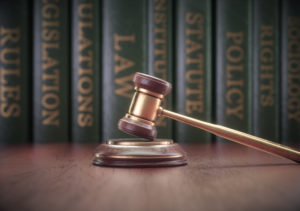An executor (note, the feminine version is known as an executrix) is the individual who is tasked with carrying out the instructions/terms denoted in a will. The individual who writes and executes a last will & testament is knowns as a testator. Essentially, the executor serves to represent the estate of the decedent.
An executor is responsible for managing the distribution of the testator’s property in accordance with the testator’s wishes. An executor’s responsibilities include managing the decedent’s affairs that are either ongoing or unfinished at the time of their death.
The Appointment of the Estate’s Executor
An executor/executrix is typically identified in the will by the person writing/executing the will – the testator. Should there be no will, a court will appoint an administrator (who is essentially the same as the executor), who will distribute the decedent’s assets according to the state’s intestacy laws.
It is essential to note that while some might consider being asked to be an executor as an honor, the individual appointed to the executor’s role has no legal obligation to take on the role. Should this situation occur, a probate court can be petitioned to resolve the issue.
Who Can be an Executor?
An executor can be anyone the decedent selects – a family member, a beneficiary, or even a neutral party, who has no dog in the fight. A will can identify multiple executors who must work together to meet the testator’s last wishes, as expressed in the will.
Each state sets forth its executor requirements, including an age minimum and a competency issue. Some states have a residency requirement as well.
The Executor’s Duties
As the estate’s legal representative, an executor has a variety of responsibilities. These include, among others –
File the Will
An executor is required to file a death certificate and the will with the county probate court – generally within a month after the testator’s death. However, the exact timing depends on the relevant state law. This is a vital step, even if the decedent’s assets pass outside of the probate process to a surviving spouse.
However, an executor is tasked with the responsibility of deciding if the estate should go through probate. If this is required, the court issues letters of testamentary, denoting who will act as the decedent estate’s fiduciary.
Notify Relevant Parties
The executor is responsible for notifying relevant parties as to the testator’s death. This includes –
- Banking institutions or credit unions.
- The US Postal Service.
- Social Security Administration.
- Medicare.
- Online social media accounts.
- The Department of Veterans Affairs, among others.
Open a Bank Account to Manage the Estate
An executor is charged with managing the estate’s assets and debts. A bank account – with the expressed purpose of handling an estate can be opened with the provision of the decedent’s death certificate and letter testamentary.
Pay Debts & Taxes
Prior to the distribution of the testator’s assets, outstanding debts must be paid in full.
Additionally, an executor must ensure that an income tax return is filed to include income up to and until the testator’s death (with the payment of any outstanding taxes due). Depending on the estate’s size, an executor may need to pay a federal estate tax on assets that are passed to someone other than a qualified charity or their surviving spouse.
Find & Manage Assets
Some states require executors to inventory all assets; however, it is smart to stay organized even if it is not required by law.
The executor is responsible for protecting and managing the decedent’s assets, which essentially means that all assets remain with the estate until probate is complete. This also indicates that the executor may be responsible for remitting mortgage payments (and other debts) until the property is passed in accordance with the will and/or state law.
Other types of assets that may need investigating include life insurance, investment accounts, or retirement accounts, to name a few.
Distribute Assets
When taxes and debts have been paid in full, what is left of the estate’s assets can be distributed. Certain states have requirements that include court approvals before assets can be distributed.
Can the Executor Benefit From a Will?
The executor cannot modify the terms of the will and can be legally responsible for improper conduct.
Does the Executor Get Paid?
Typically, an executor is compensated for the work performed as an executor, as some large estates become quite complicated. The decedent generally dictates the terms of the executor’s fee as either –
- A flat fee.
- A percentage of the estate.
Executors are typically paid when debts have been satisfied, but before the decedent’s assets are distributed. It is noted that the fee received by an executor is subject to income tax and must be included in the relevant year’s tax return.
The Take-Away
Deciding to be an executor of an estate requires extreme care and responsibility. Be certain you are up for the task or consider speaking with an attorney to get a legal opinion.




